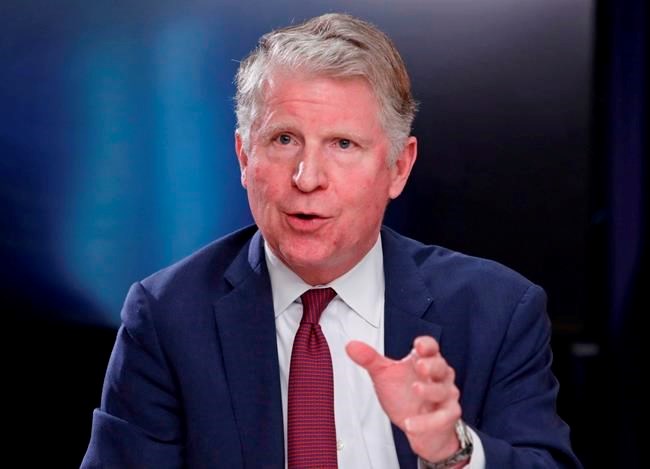NEW YORK — The Supreme Court ruled that Manhattan District Attorney Cyrus R. Vance, Jr. can obtain President Donald Trump's tax returns for a criminal investigation but sent a second request by Congress for the records back to lower courts.
Here are some key questions and answers stemming from Thursday's decision:
Q: WHAT WAS THE DISTRICT ATTORNEY'S CASE ABOUT?
A: The records were being sought for a criminal investigation by Vance are part of a broader probe that includes payments made to buy the silence of two women, porn star Stormy Daniels and model Karen McDougal, who claim they had affairs with the president before the 2016 presidential election. Trump has denied them.
Two Manhattan federal judges ruled in separate cases that the subpoenas could not be blocked by Trump. The 2nd U.S. Circuit Court of Appeals in Manhattan upheld the rulings late last year. The Supreme Court was left with the final word. It upheld the legitimacy of the subpoenas but returned the cases to the lower court to determine if Trump could limit the scope.
Trump has refused to release his tax returns since he was a presidential candidate, and is the only modern president who hasn’t made that financial information public.
Q: WHO WON?
Vance overcame Trump's claims that he should be shielded from state criminal investigators while he is president. The high court sent the case back to the lower courts, but they largely threw out Trump's argument.
The court turned away the broadest arguments by Trump’s lawyers and the Justice Department that the president is immune from investigation while he holds office or that a prosecutor must show a greater need than normal to obtain the tax records.
Vance, a Democrat, whose office recently won a #MeToo conviction against Harvey Weinstein, saw a “tremendous victory for our nation’s system of justice and its founding principle that no one – not even a president – is above the law."
Trump's lawyers also claimed a victory. Attorney Jay Sekulow, said he was pleased lawyers can argue in the lower courts that the subpoenas must be limited in scope, an argument Trump’s lawyers made all along.
Q: WILL ANYBODY SEE TRUMP'S TAX RECORDS BY ELECTION DAY?
Unlikely. Perhaps a grand jury will get to view some records in sealed proceedings, but the Supreme Court ruling all but wiped out any chance that Congress or the public will get to scrutinize Trump's tax records by November.
The subpoenas by Congress and Vance will now be debated before federal judges in Manhattan, where any rulings on what can be turned over could be appealed again to the 2nd Circuit and the Supreme Court.
Even if judges expedite those decisions, the process will likely take weeks and even months to resolve fully. Records could then be released to a grand jury in Manhattan. Vance has said the records will not be made public.
Even the increasing likelihood that a grand jury will eventually get to examine the documents drove the president into a public rage. He lashed out declaring that “It’s a pure witch hunt, it’s a hoax” and calling New York, where he has lived most of his life, “a hellhole.”
Larry Neumeister, The Associated Press

